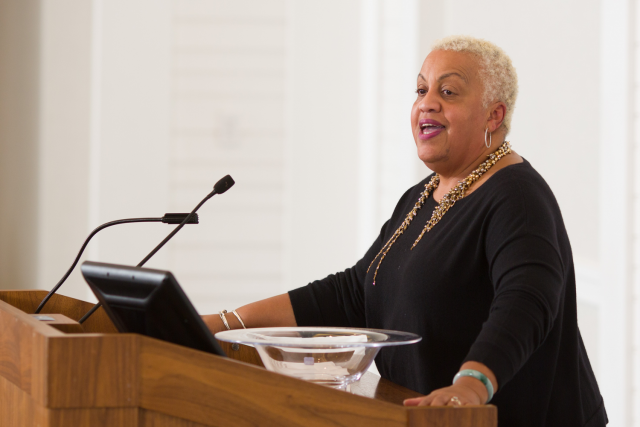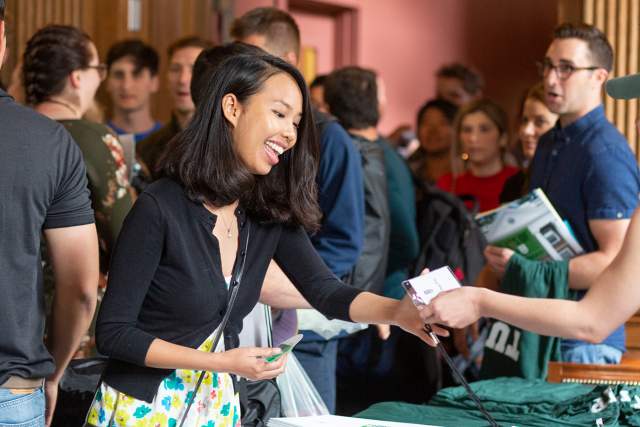Across all alumni events, participants will have the chance to reflect on the central theme of the 50-year anniversary: What does it take? It’s a question that almost everyone faces when trying to overcome obstacles that stand in the way of their career and life goals.
“To get where you want to go, to do what you want to do, or to give up something that you didn’t want to give up—all of those things require courage, decisiveness, empathy, and leadership,” says Allan. “Those are all things that Tuck teaches us, and they teach it now both in the classroom and through various experiential learning. It takes a lot to be successful.”
Fransson knows that all too well. Back at her Tuck graduation in 1970, at the insistence of her classmates who knew the significance of the role she would play in Tuck’s history, she stood in the center of the front row of her class picture, in a gingham dress, proudly standing as the only woman surrounded by a sea of men in business suits and ties.
Much has changed since then. More than 2,400 alumnae have since followed in Fransson’s footsteps. And today, women make up close to 50 percent of the class of 2020, including Caroline Wells T’20, who currently serves as student body president and interned this past summer at Google.
“I feel like I owe it to the women who have come before me and paved the way for this incredible opportunity I have,” Wells says. “Attending Tuck has given me the tools and confidence I need to be an effective business leader. I could be dropped into any situation across the gamut and feel like I can handle it.”
To get where you want to go, to do what you want to do, or to give up something that you didn’t want to give up—all of those things require courage, decisiveness, empathy, and leadership. Those are all things that Tuck teaches us.
Fransson’s legacy can’t be understated, but she’s quick to acknowledge the other trailblazers at Tuck—like pioneers Herb Kemp, Jr. T’66, the first African American to graduate from Tuck, and dean emeritus John Hennessey, Jr.,—who helped pave the way for future leaders. Hennessey, for example, presided over one of the most consequential periods in Tuck’s history and helped usher in important changes that opened doors for people who didn’t have the opportunity.
“John Hennessey changed my life,” says Fransson. “He also became a life-long friend.”
We invite you to learn more about the year-long celebrations taking place on the 50 Years of Women website. You may also contact Tuck Alumni Engagement for additional information.

